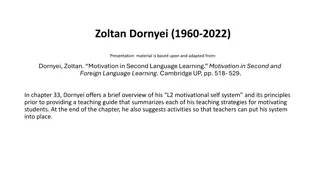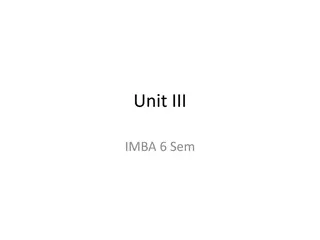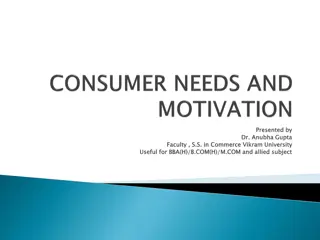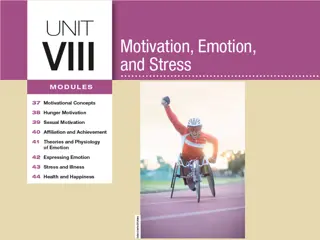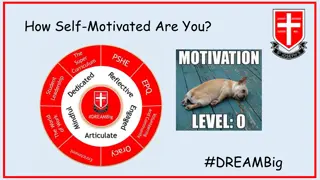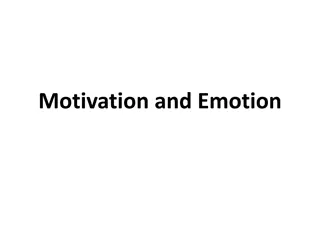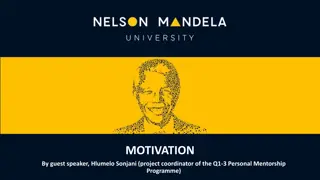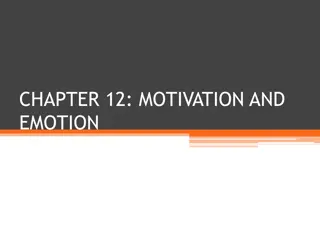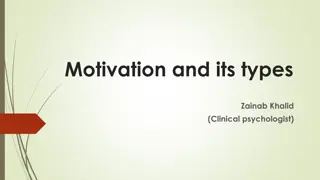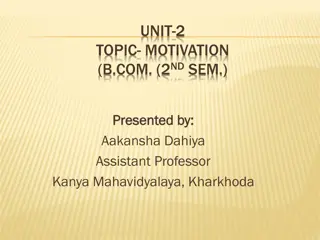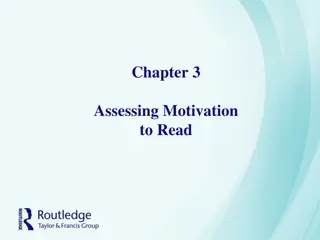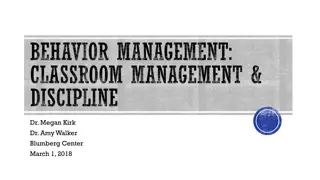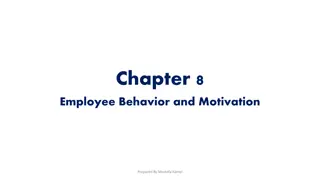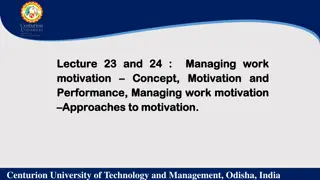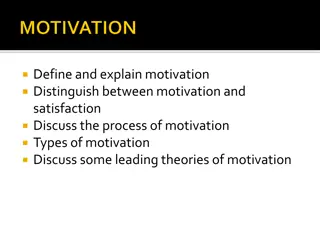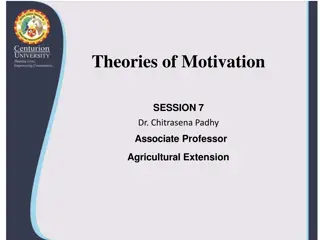The Power of Motivation in Learning and Behavior
Motivation, the driving force behind all activities, is crucial in education and behavior. It compels us to act and perform, impacting learning success and overall performance. Understanding and utilizing motivation techniques is essential for teachers to engage and inspire students effectively.
Download Presentation

Please find below an Image/Link to download the presentation.
The content on the website is provided AS IS for your information and personal use only. It may not be sold, licensed, or shared on other websites without obtaining consent from the author. Download presentation by click this link. If you encounter any issues during the download, it is possible that the publisher has removed the file from their server.
E N D
Presentation Transcript
Every activity has a driving force behind it. This may be called motive force of our behaviour. Without motivation, noactivity is possible. The word motivation is derived from the Latin root movere which means to move . Thus, motivation means the process of movement in theorganism. arousing
T.W. Atkinson (1966) defined motivation as the arousal of tendency to act to produce one or more effect. According to C.V. Good (1973), Motivation is the process of arousing, sustaining and regulating activity.
To Skinner, Motivation is the super-highway to learning . Gray & Stark states - Motivation is the result of processes, internal or external to the individual that arouse enthusiasm and persistence to pursue a certain courseof action.
Motive is that state of organism which makes it perform certain act or duty. The organism goes intoaction undersome form of inner pressure. Thus, motivation may be considered as that force which compels us to act or to behave in a particulardirection.
Motivation is very important in every phase of education. The success of teaching-learning process depends upon incentives and all those forces that set the child to learning activity. encouragement, In other words, the problem of education is the problem of motivating the pupils. When the pupils are motivated, half the work of the teacher is done.
Motivation is the act of stimulating interest in the pupils. In fact, motivation gives rise to interest and interest is the short-cut to all learning. A well-motivated pupil is highly attentive. He/she takes to his/her work whole heartedly and achieves maximum success in the activity. The knowledge of techniques of motivation is of great importance to the teacher. Hence, we can say that motivation is an essential condition of learning.
The role of motivation in learning process may briefly be summarized as below: 1) Motivation is an art of inculcating interest in learners. Interest is said to be the mother of attention and attention, in turn, is the mother of learning. Unless motivating the learners, it is quite impossible to create interest and attention which may cause the failure of learning.
2) In learning process, the psychological or mental energy of the learner is very essential. This energy to the learner is brought about by motivation. 3) Motivation helps to raise this goal because it sustains and energizeour behaviour. Learning is a goal-oriented activity.
4) When students are motivated, they show persistency in learning. Motivation helps the learners to practice a thing more and more which gradually leads to effective learning. 5) Motivation helps in capturing attention of the students and attention learning. The teacher can help the students in concentrating their attention on studies by motivating them. leads to effective
Accordingly, motivation plays a vital role in the process of learning. In fact, motivation is called the central factor of learning. As we cannot imagine the existence of a school, college or university without pupils, so we cannot imagine an effective learning without proper motivation. Therefore, it is very essential for the teacher to motivate his students in the classroom before theyare taught.
THANK YOU









